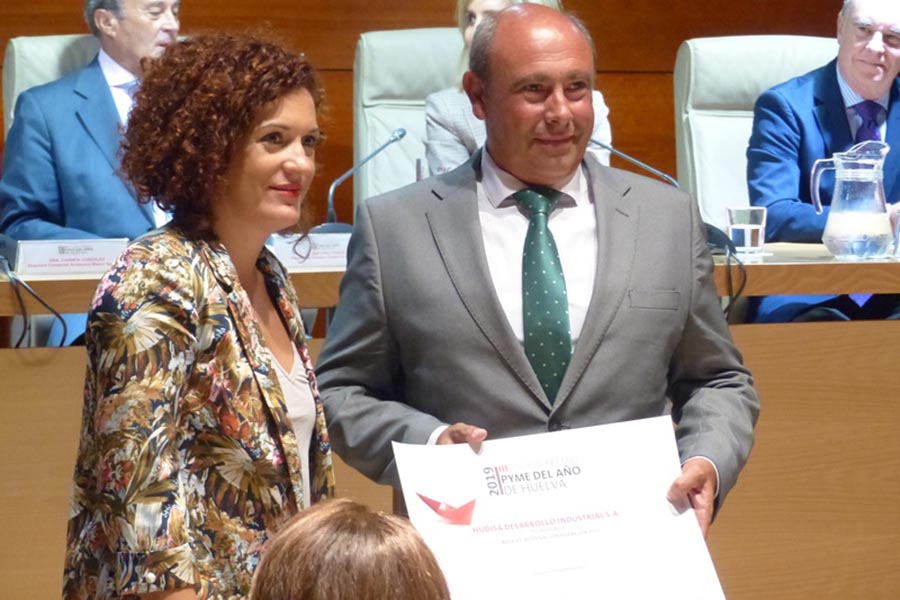Lepe, September 2019 In 2018 Hudisa transformed over 20,000,000 kg of red fruit, 70% of which was to be exported. Being present in over 30 countries, there has been a gradual increase in Hudisa’s international business and since 2015 there has been a 14.23% rise in turnover from abroad, and 70.90% has been from countries that are not members of the EU. The company’s presence, quality and image, as well as the effort made to open new markets are some of the aspects that the Huelva 2019 PYMES (SMEs) awards jury have assessed to award the prize in this edition.
Hudisa began its activity in 2002, as a result of the union, the business-oriented approach and future of the 19 most important red fruit producing cooperatives in Huelva, thus creating a vertical integration and focusing on the transformation of industrial fruit.

The award is given by the Vice President of the Diputación Provincial (Provincial Council), María Eugenia Limón
Hudisa processes and markets strawberry, raspberry, blackberry and blueberry purées, concentrates as well as frozen fruit and is working in three different product ranges, which are: conventional, Baby Food and Organic lines. It is currently the leading company in processed red fruit in the south of Europe with a production potential of over 20 million kilos per year. The shareholders include the main red fruit producing cooperatives, with the union of over 1000 farmers, who take the greatest care of their fruit, as well as Caja Rural del Sur Bank and Huelva Provincial Council
“We can confirm – said Antonio Tirado, Hudisa President – that we are a company where quality is the most important element in our product diversification strategy, and this is possible thanks to the commitment and high qualification level of our producers, as well as the full commitment of all of the consisting workforce in Hudisa.” Tirado also stressed “the money that has been invested in relevant material and technological resources, in order to satisfy our customers’ expectations and demands on a global level.”
Hudisa also has the most highly demanding industrial process certificates, such as FSSC 22,000, Kosher, Halal and CAAE, which allow them to market their products to large multinationals in the food sector, as well as guaranteeing food safety.





